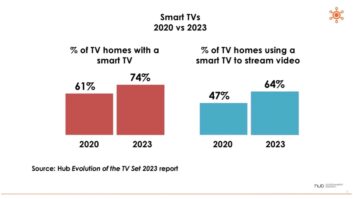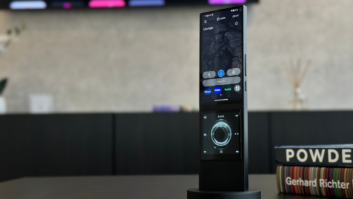
Shopping by voice is still in its infancy, as only 13 percent of homes have smart speakers. But once the virtual assistant cylinders take flight, a major new sales channel will be upon us, spelling further challenges for retailers and vendors.
According to a study by OC&C Strategy Consultants, voice shopping is expected to soar 1,900 percent by 2022, to $40 billion from the $2 billion in sales forecast for this year. Driving that growth will be widespread adoption of smart speakers, which is projected to climb from the current 13 percent of households to 55 percent in four years, the consultancy said.
See: Six Cutting-Edge Technologies That Will Change The Way We Shop
Voice shopping may also be hitting the road, as 57 percent of U.S. broadband households are interested in voice control features for their car, a new Parks Associates study shows.
The biggest beneficiary in this next wave of retail disruption will likely be Amazon, which has a head start in the voice segment through its popular Echo line of smart speakers and Alexa AI engine. OC&C pegs Echo’s current penetration at 10 percent of U.S. homes, followed by Google Home at 4 percent and Microsoft’s Cortana at 2 percent.
Apple, the firm observed, “has been left behind,” as its Siri virtual assistant so far lacks the AI capabilities of Google Assistant, and its HomePod has only recently launched.
Now here’s where it gets thorny for vendors and retailers: Amazon is leveraging its “Amazon Choice” product recommendations as the default directive for any shop-by-voice search when no brand is specified.
Watch: How Comfortable Are Consumers With Voice Control?
Amazon Choice is already a powerful force in online shopping, with 85 percent of Amazon customers choosing the recommended items, OC&C said. As a result, products blessed with an Amazon Choice tag typically triple and then some in sales, while losing that status usually results in a 30 percent sales decline.
But a test by Bain & Co. showed that Amazon Choice products also have the upper hand in voice shopping, the Wall Street Journal reported. According to the results, more than half the products that Alexa recommends to first-time purchasers who didn’t specify a brand are Amazon Choice items. What’s more, Alexa will first offer an Amazon private-label product 17 percent of the time, if the e-tailer has one.
Amazon won’t disclose the algorithm behind its recommendations, although the selections are intended to be well-priced, well-rated and available through Amazon Prime, the Journal noted. A source familiar with Alexa’s inner workings told the newspaper that the algorithm uses machine learning to identify which features are most important to the shopper, allowing the recommendations to improve over time.
The trend is of particular significance to the tech industry, whose consumer electronics products are the third most often shopped category by voice, coming in at 17 percent behind groceries (20 percent) and entertainment (19 percent).
To avoid getting shut out, maintaining Amazon Choice status is critical, OC&C said, even though the designation changes 4 to 5 percent daily due to stock or delivery speed issues. Vendors should also tailor search terms for distinctiveness to increase the chances that their products are “found.”
For retailers, it is imperative to develop Alexa “skills,” or connected applications, that integrate into current voice offers. Only 39 such skills currently exist within the voice shopping category, the consultancy said.
“In order to properly position themselves, retailers must ask themselves key questions,” said Coye Nokes, an OC&C partner. They include:
- What objectives am I trying to meet?
- How should I tailor my voice proposition to meet those objectives?
- Which AI system is best suited to enabling those objectives?
- How can I build consumer trust in my product recommendations?
- How can I make the order economics work?
“The companies that are able to answer those questions most clearly are likely to be the winners in this next phase of retail disruption,” Noke said — which promises to be as jarring as e-commerce and mobile shopping.













